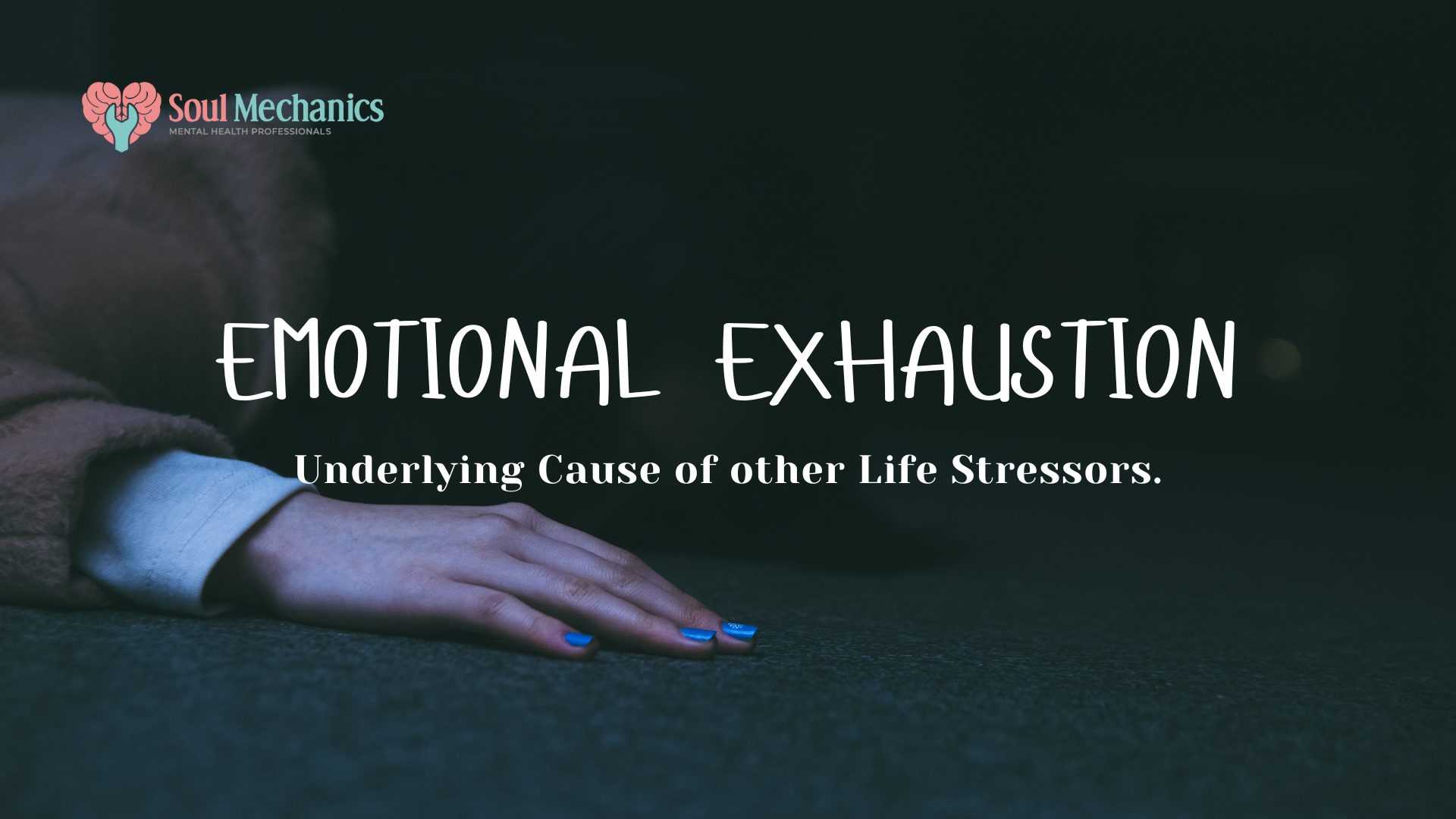Emotional Exhaustion
Emotional Exhaustion

Written By: Shaundtrya Ganasan, Licensed Counselor (KB11097)
Have you ever felt too overwhelmed and numb at the same time?
You may even start to blame the smallest things.
Sunday nights could be nerve-wracking with the thought of the next Monday morning.
It could be a sign that you’re emotionally exhausted.
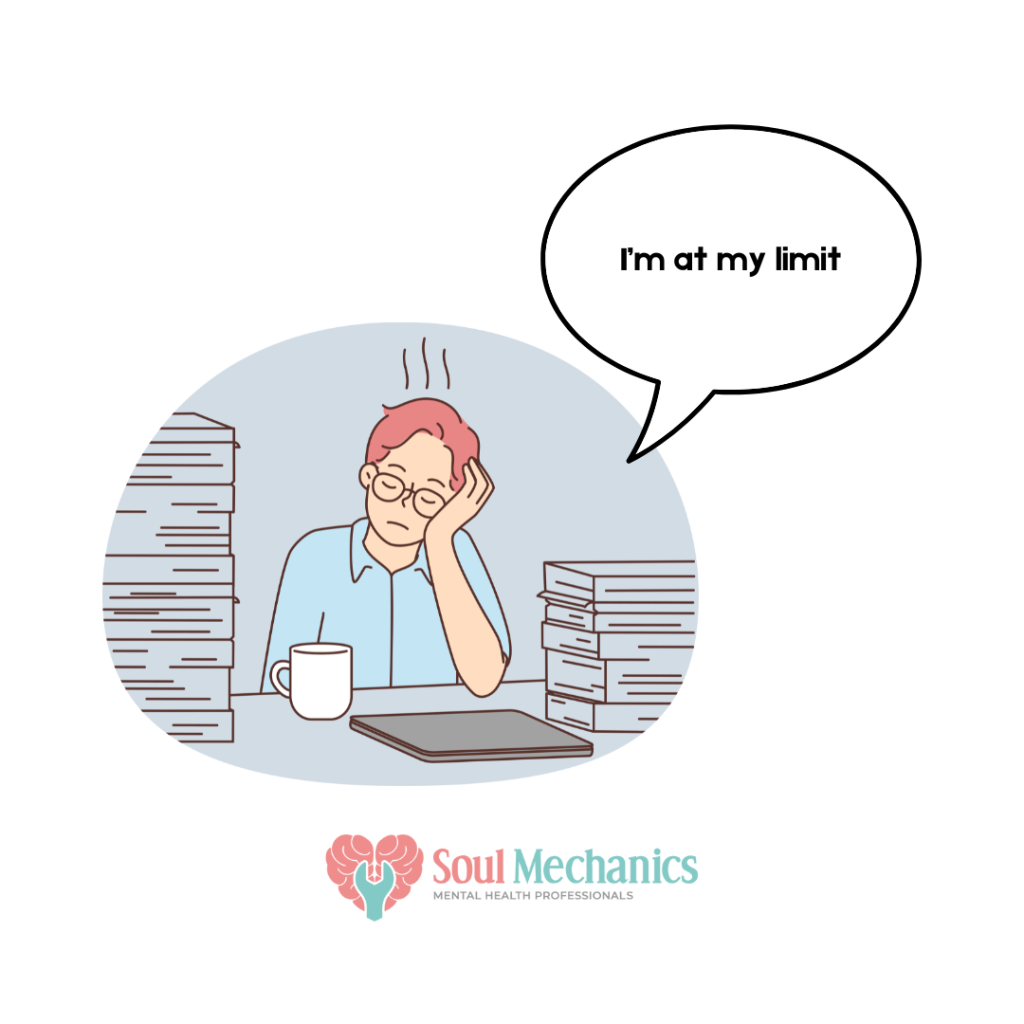
Emotional exhaustion, in today’s busy world, has been quietly emerging as a prevalent issue, which drains your energy and makes you feel overwhelmed; leaving you feeling disconnected from yourself and others. Although many of us link stress with external factors like work pressure, personal life conflict or financial burdens - emotional exhaustion can often be the hidden root of these issues, which negatively impacts your relationships, health, and overall well-being.
Reminder: If you or your loved ones are struggling with mental health issues, please don't hesitate to reach out to us at Soul Mechanics KD or Soul Mechanics Ipoh. Remember, seeking help is not a sign of weakness but strength!
What is Emotional Exhaustion?
Emotional exhaustion occurs when someone feels emotionally taxed and depleted from their emotional energy bank. It’s the feeling of being “worn out” from the inside, whereby even a basic task feels insurmountable. Unlike physical exhaustion, emotional exhaustion roots from withholding or accumulating stress, anxiety, or other emotional demands for a prolonged period. It is often misunderstood with general burnout—emotional exhaustion, on the other hand, emphasizes the emotional and mental toll life takes on you.
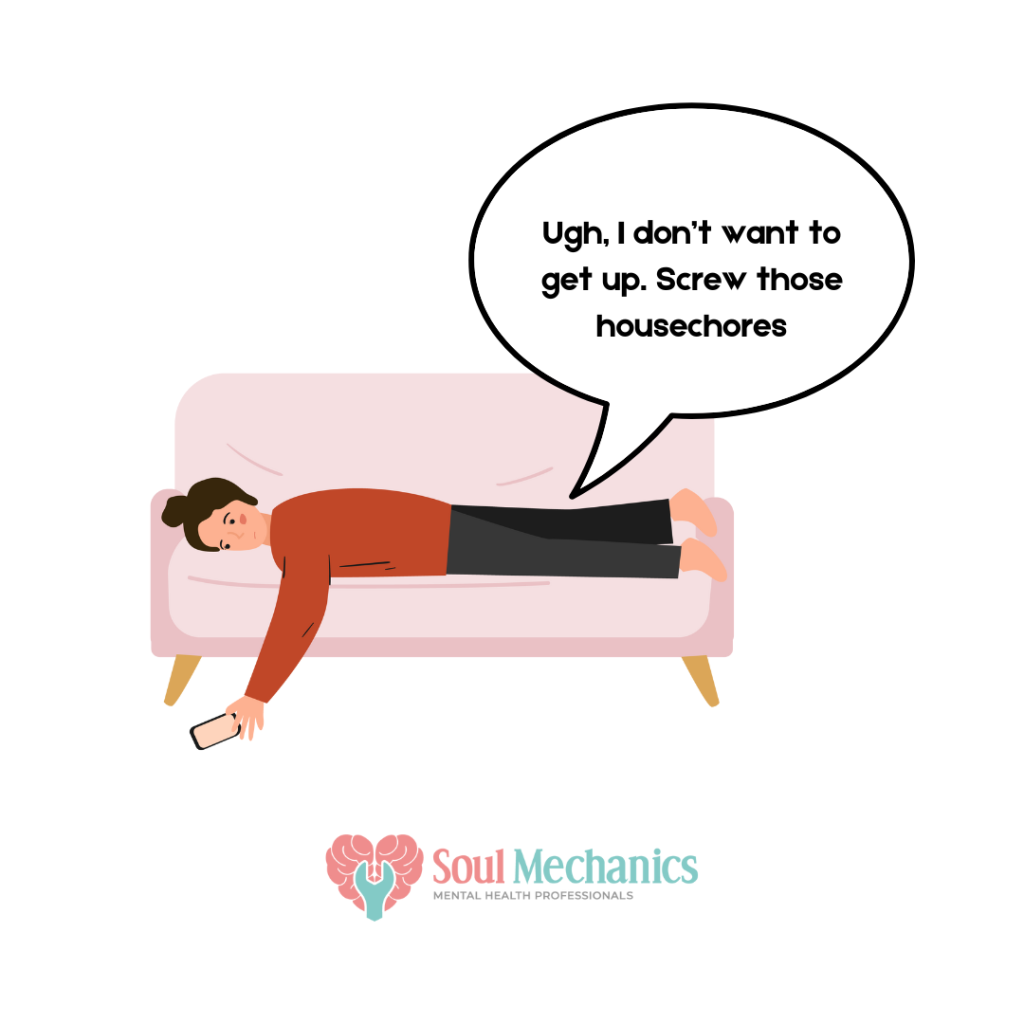
Now imagine, there is a cup filled with water. The water is your emotional resource bank, and daily life stressors are slowly draining it. When you don’t refill the cup with emotional rest or self-care, it runs dry; leaving you to find it tough to function efficiently. This depletion affects every part of your life, from the way you handle inconveniences to making bigger life decisions.
What Causes Emotional Exhaustion?
Addressing the cause of emotional exhaustion is the stepping stone towards managing it. As every one of our experiences differs, several common roots of emotional exhaustion lead to this issue.
Prolonged Stress
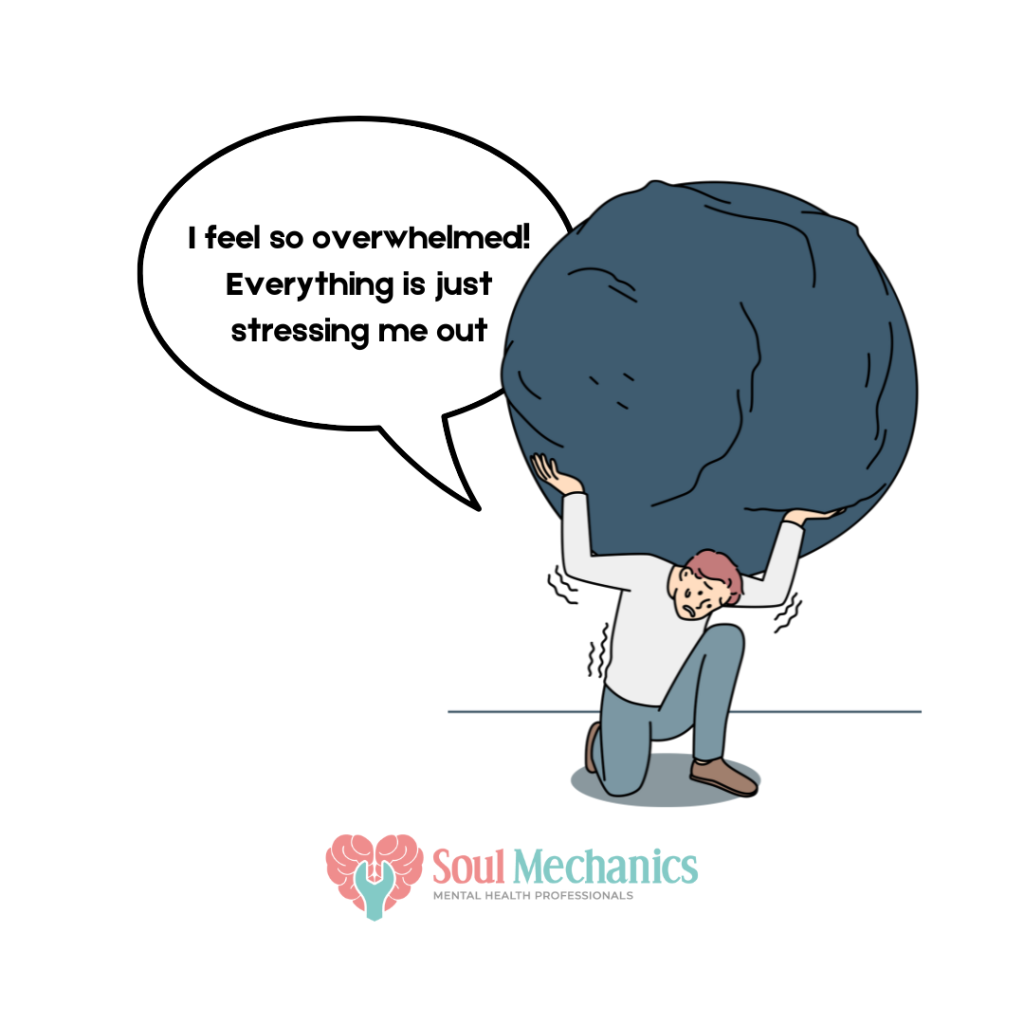
One of the well-known culprits behind experiencing emotional exhaustion is prolonged stress. Be it due to work, meeting personal demands, relationships or ongoing stressors that take a toll on your emotional bank. Unlike short bursts of stress that your body can quickly recover from, prolonged stress tends to keep your body and mind on a loop of high alert, further depleting your emotional resources over time.
Reminder: If you or your loved ones are struggling with mental health issues, please don't hesitate to reach out to us at Soul Mechanics KD or Soul Mechanics Ipoh. Remember, seeking help is not a sign of weakness but strength!
Lack of Boundaries
Not having firm boundaries in different life aspects, like work, relationships, friendships or in personal life, the resources in your emotional bank can rapidly be drained. You may struggle to say “no” or comply to meet expectations from everyone - finding yourself to be exhausted. It can also leave you with no time for self-care as emotional exhaustion has already set in.
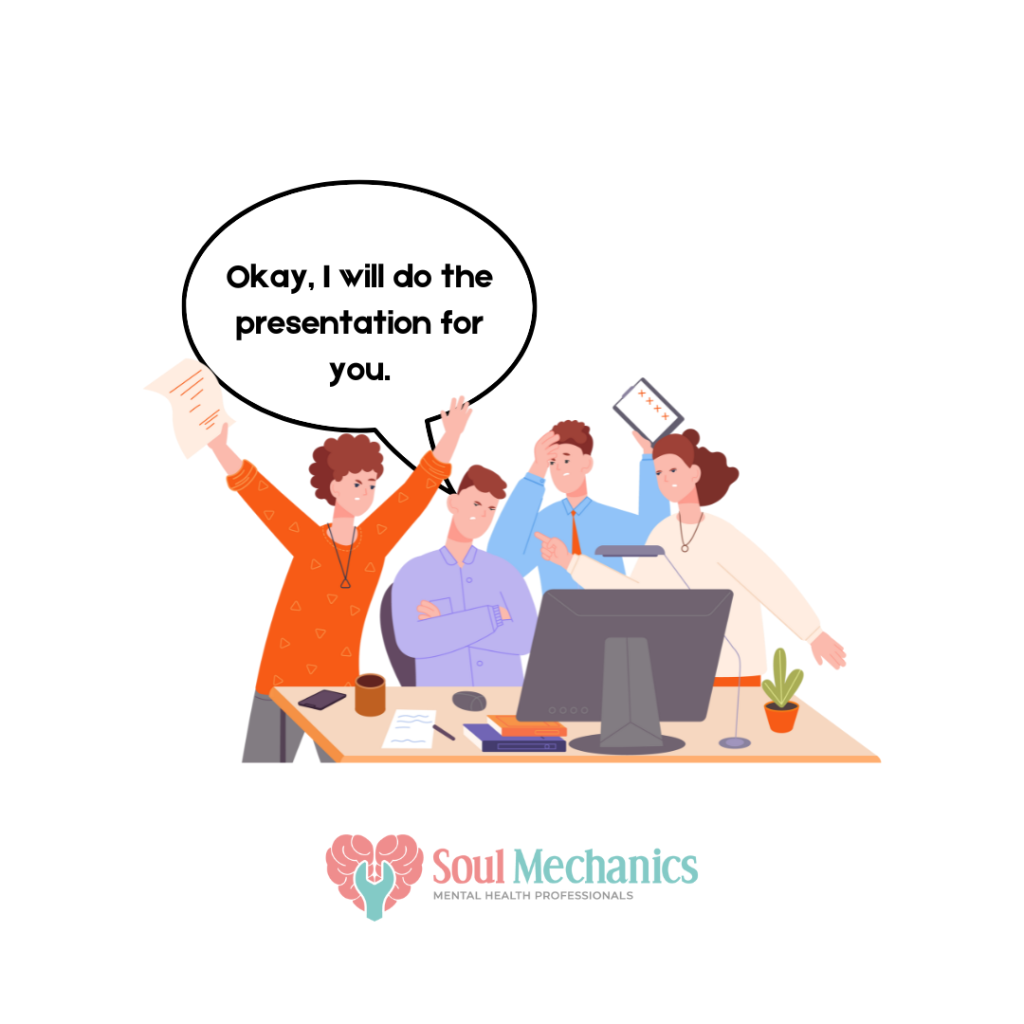
High Emotional Demands
Certain roles or jobs require high emotional demands from you. Therapists, social workers, teachers, caregivers and other helping professionals often undergo emotional exhaustion rooted from the emotional labour which is much required in the job. Similarly, parents of caregivers of elders or special children also experience high emotional demands which often drain their emotional energy.
Emotional Suppression
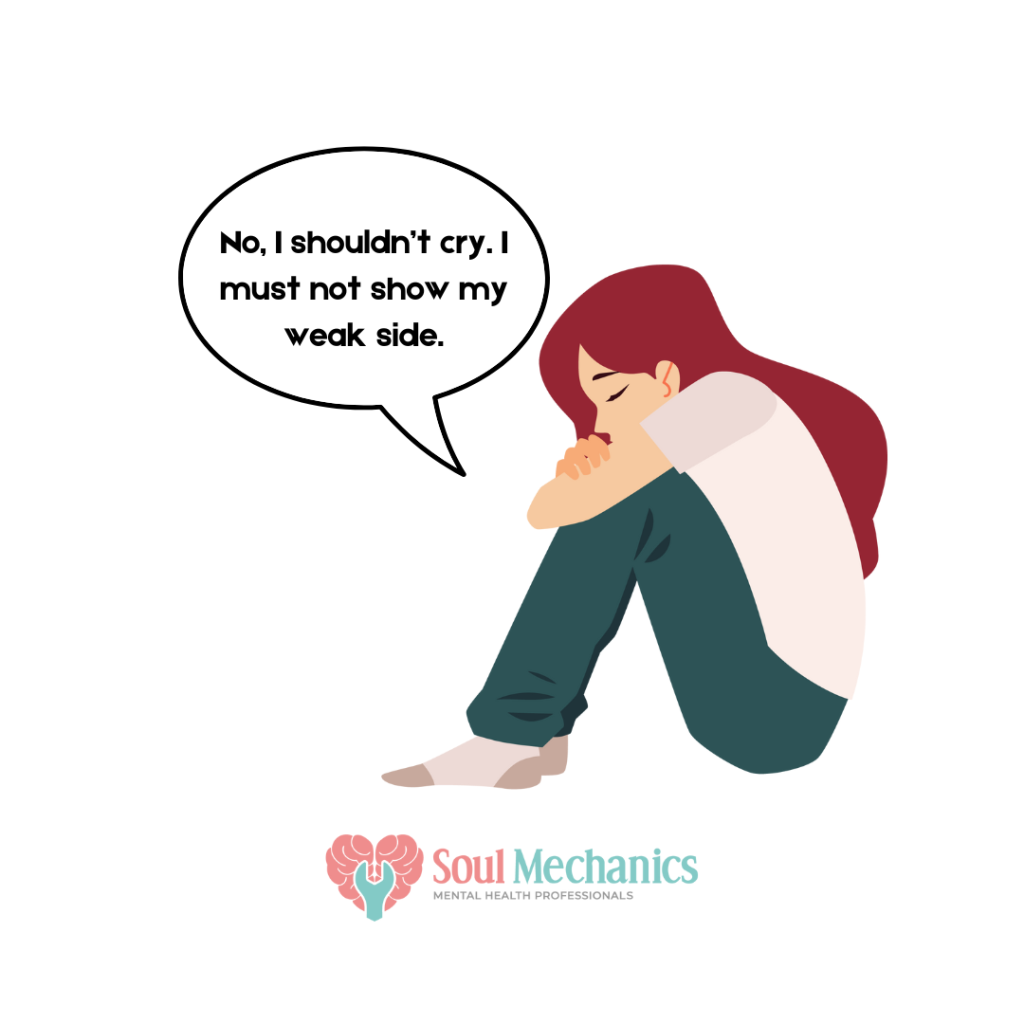
When you begin to suppress your emotions to avoid feeling anger, fear or pain, you end up bottling them within you. This can create internal tension which also depletes the resources in your emotional bank. The energy it requires to maintain your emotional suppression can contribute to your exhaustion.
The Effects of Emotional Exhaustion
Just like how a tree branches, emotional exhaustion doesn’t just affect one part of your life, it grows through different life aspects. When your energy in your emotional bank is depleted, stressors in other life areas tend to magnify - be it in family, career or personal growth.
Relationships: Connection Erosion
When you are exhausted emotionally, your capacity to nurture other relationships and your own self diminishes. Your loved ones may start interpreting your withdrawal or exhaustion as coldness or disinterest which leads to the growth of resentment and misunderstandings. Over time, this emotional exhaustion can erode the emotional intimacy you share with your loved ones and it can be also challenging to maintain a healthy bond.
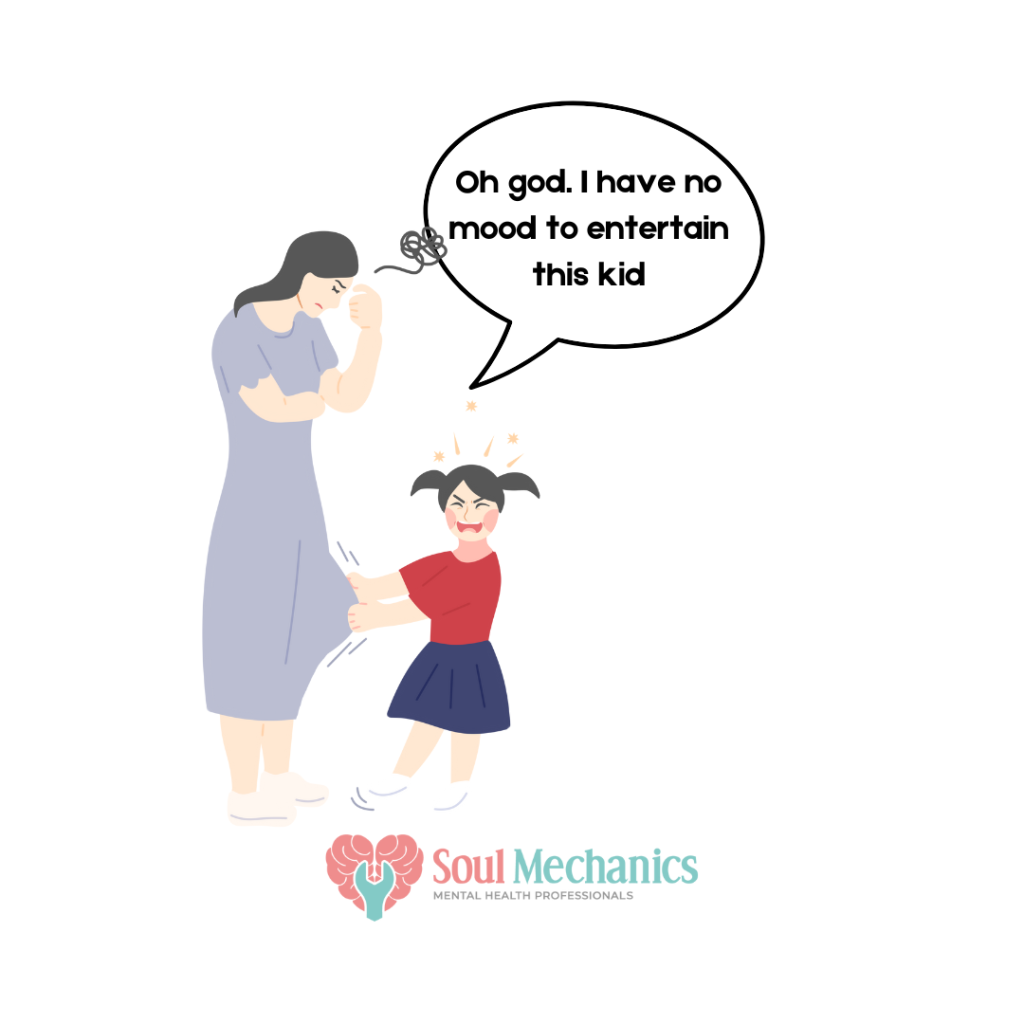
Small arguments can escalate into bigger ones, patience starts thinning, and communication starts to have its own breakdowns. You may also start to dodge difficult conversations as they seem to make you more exhausted, whereas opting for short-lived peace seems to be more tempting; further causing long-term damage in relationships. Over time, it also becomes tough to distinguish between detachment and emotional withdrawal which pushes your once-close relationships to be more fragile and on the brink of collapse.
Reminder: If you or your loved ones are struggling with relationship-related or mental health issues, please don't hesitate to reach out to us at Soul Mechanics KD or Soul Mechanics Ipoh. Remember, seeking help is not a sign of weakness but strength!
Physical Health: Hidden Strains
Emotional exhaustion does not only show up through feelings of isolation; it also takes a huge toll on your physical health. Chronic and intense emotional distress can trigger your body into fight-or-flight mode, causing an overproduction of stress hormones like cortisol. Over time, this constant state of tension will wear down your body which manifests in symptoms like insomnia, headaches, weak immune and gut issues.
When the emotional exhaustion becomes overwhelming, it can lead towards more severe health conditions like heart disease or hypertension. Your body will start to respond to emotional exhaustion as if it’s a state of emergency which creates long-term health deterioration if left unacknowledged.
Workplace Stress: Decline in Productivity
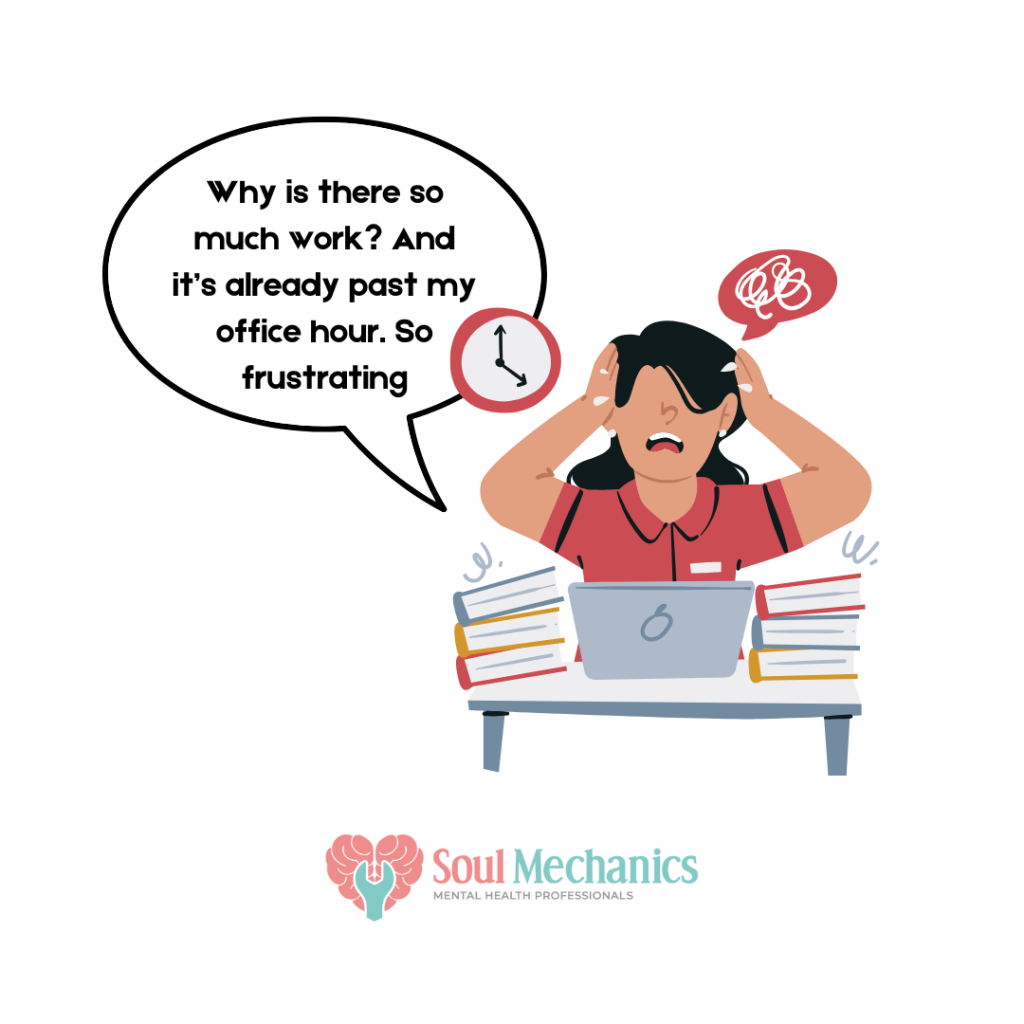
For many of us, emotional exhaustion usually starts at work, especially in emotionally demanding or high-pressure professions. The exhaustion can make your once manageable or enjoyable job feel draining. Deadlines and tasks can feel overwhelming, and your motivation gradually depletes. Over time, you may find yourself disengaging or questioning your career purpose.
Emotional exhaustion experienced at work can lead towards a loop of stress. The more emotionally exhausted you are, the tougher it becomes to complete tasks, which drops your productivity. Your colleagues may start to recognize the fluctuations in your enthusiasm or even mistakes in tasks; creating a sense of unworthiness. Consequently, you may also begin to experience “quiet quitting” whereby you have energy only to do the bare minimum to get through as you may no longer have the capacity to engage at work fully.
Personal Growth: Stunted Development
When the resources in your emotional bank are low, there’s very little left to nurture your personal development or self-improvement. Hobbies that once brought happiness tend to feel like burdens and goal setting can be overwhelming and troublesome. Your emotional exhaustion can also create a strong barrier between you and your aspirations. Rather than striving towards progress, you may opt for survival mode, whereby you will be doing just enough to push through the day ensuring you don’t collapse in the process.
As your emotional exhaustion takes a strong hold on you, it’s easy to be stuck in the loop of stagnation. You may also start to recognize you’re no longer moving forward in any aspect of life - be it in learning skills, nurturing relationships or enjoying small little things - as emotional exhaustion has limited your ability and capacity to invest in yourself and others.
How to Combat Emotional Exhaustion
Healing from emotional exhaustion is never a quick fix, but there are some strategies you can start implementing to start your journey of refilling your emotional reserves.
Set Clear Boundaries
Set firm boundaries to prevent your emotional depletion. Learn to say “no” when it's needed and understand your own limits. Protecting your emotional reserves will allow you to focus better on what truly matters to you and also ultimately provide you with space to recover.
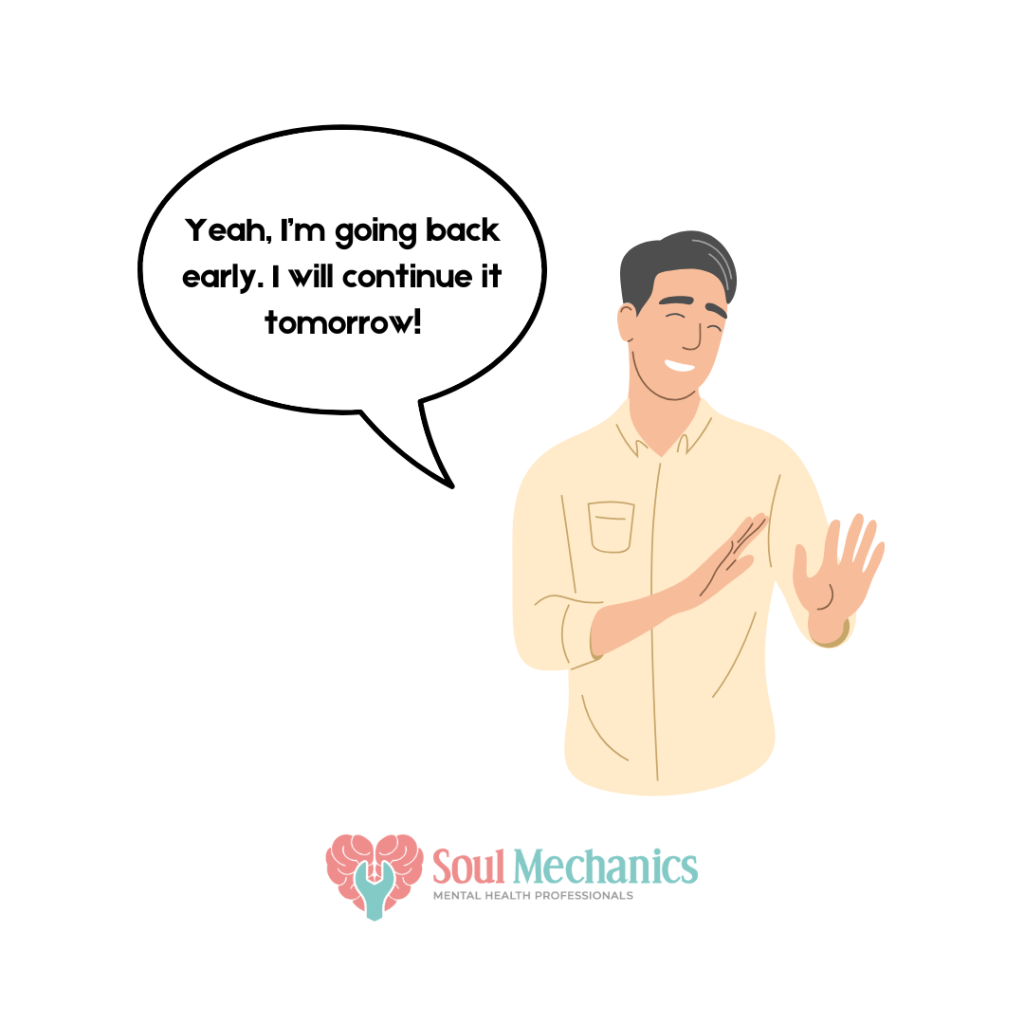
Prioritize Self-Care
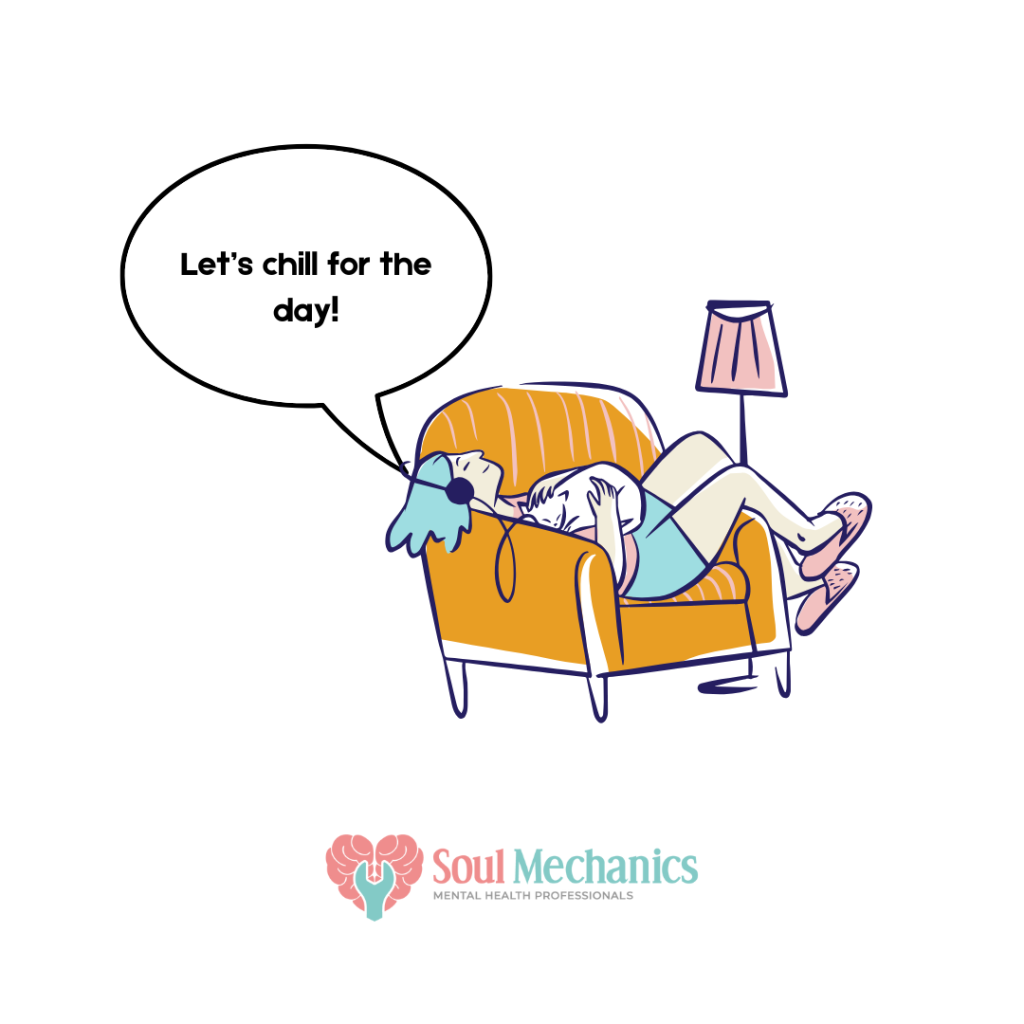
It is also crucial to engage yourself in self-care activities that help you nurture your emotional health. This includes journaling, walking in nature, meditation, or as simple as having quiet, alone time. These practices will guide you to refill your emotional bank; allowing you to function more efficiently in other life aspects.
Seek Support
Seeking assistance from a certified mental health therapist can also be an invaluable approach to healing from your emotional exhaustion. A therapist can guide you to navigate through tough emotions, recognize underlying stressors and create a more personalized strategy tailored to your issues to manage your emotional exhaustion. Reaching out to trusted loved ones for emotional support can also help you ease some emotional burdens and feel lighter.
Practice Emotional Release
Letting out or sharing your emotions rather than simply bottling them up is vital for long-term emotional health. Be it through therapy, engaging in creative expressions like art or writing or talking to a trusted loved one, releasing pent-up emotions can prevent or reduce your emotional exhaustion from getting out of hand.
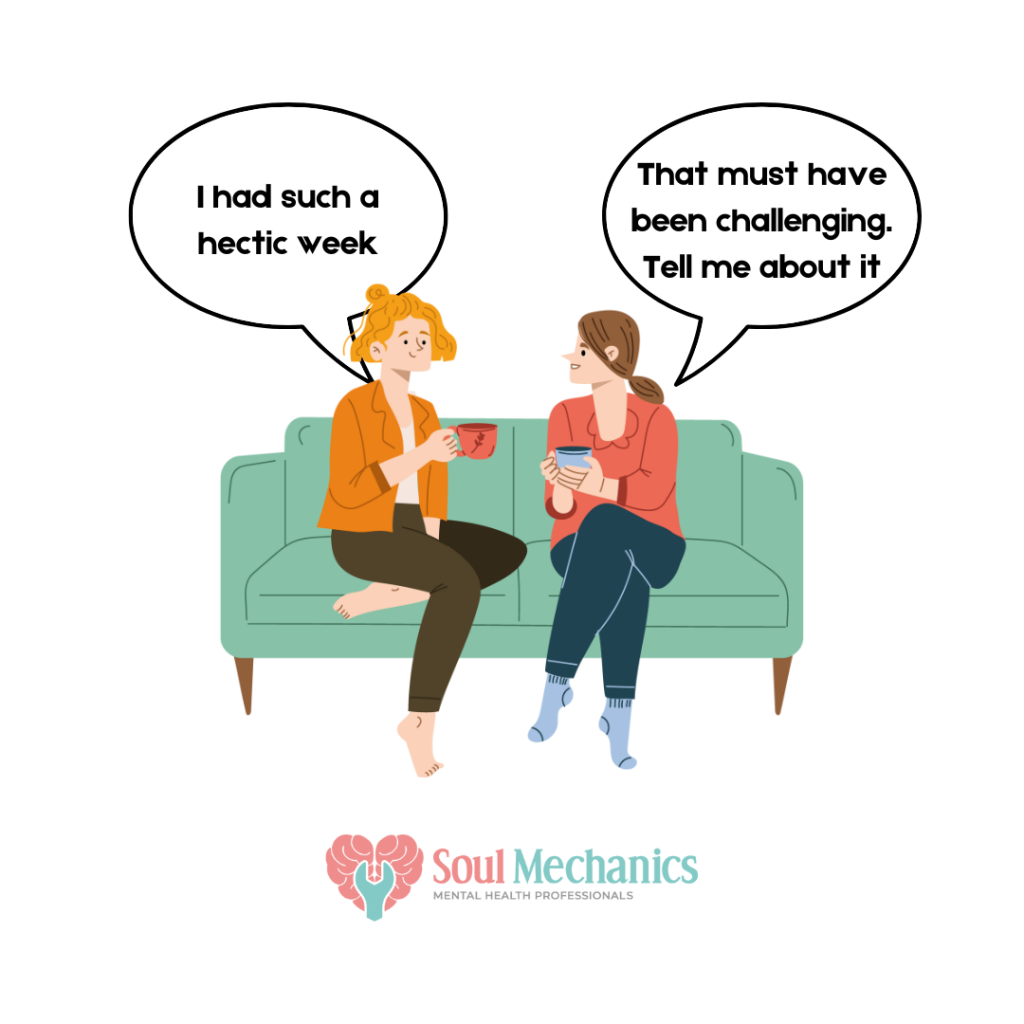
Reduce Stress
Reducing your stress sources is essential to manage your emotional exhaustion. This means delegating your tasks at work, removing yourself from toxic environments or asking for assistance in your personal life. By cutting down on your emotional stressors, you can make more space to heal.
Conclusion
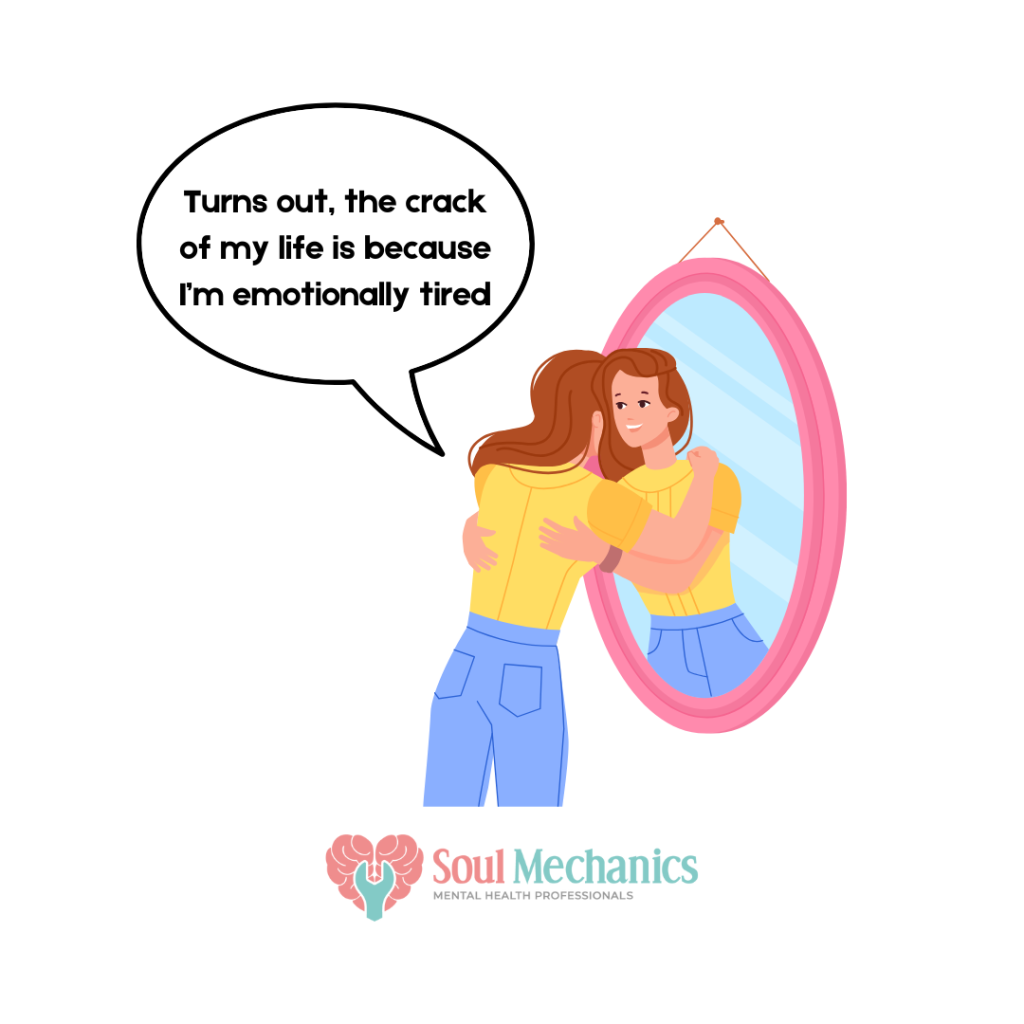
In short, emotional exhaustion is a hidden drain on your mental well-being. If it's left unchecked, it may magnify your other life stressors. It can also quietly shadow into your health, relationships, personal growth and career; leading to deeper issues. By addressing its signs early and practising self-care and healthy emotional release, you can restock the resources in your emotional bank. Through this, you can open the door to healthier relationships, improved productivity, and overall well-being.
If you’re looking for a therapist in Kota Damansara or Ipoh area, you can click here for more information.
If you enjoyed reading this, why not broaden the horizon of knowledge by learning about "Burnout: Recognizing the Tell-tale Signs of Burnout"? You can read the blog here.
For more content related to mental health do follow us on our official Instagram.

